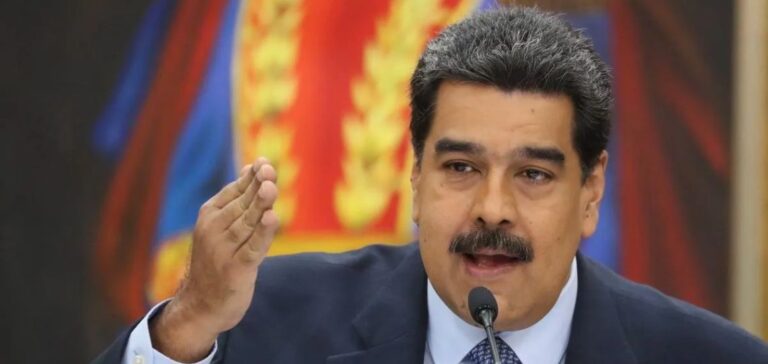Venezuelan President Nicolas Maduro welcomed as a step in the “right direction” the authorization given by the United States to the energy giant Chevron to operate in Venezuela despite the sanctions, but pleaded for the complete lifting of financial restrictions imposed on his country.
The licenses that Washington has granted to Chevron and other companies “are undoubtedly going in the right direction, although they are not sufficient for what Venezuela is demanding, which is the complete lifting of all unilateral coercive measures on the oil industry,” Maduro said at a press conference.
The U.S. government allowed Chevron to partially resume hydrocarbon extraction in Venezuela minutes after announcing a second “partial social protection agreement for the Venezuelan people.”
Chevron has been allowed to restart operations in the four companies it owns with Venezuelan state-owned giant Petroleos de Venezuela (PdVSA,) although it must ensure that the state-owned company receives no revenue from its oil sales.
This authorization came immediately after the signing of an agreement between the Venezuelan government and the opposition for the release of three billion Venezuelan dollars frozen abroad by the sanctions, to be used for social projects.
“The idea of removing Venezuela from the global economic circuit was a bad idea, an extremist idea of Donald Trump, and they are paying the price because Venezuela is part of the global energy equation,” said President Maduro.
“No matter who it hurts, we have to be there, we are a great oil power and we are going to be a gas power,” he added, recalling that just a few days after the start of the war in Ukraine on February 24, Washington, worried about the rise in oil prices, had sent a mission to negotiate in Caracas.
In May, Washington had already allowed Chevron to “negotiate” its possible resumption of operations in Venezuela, which represented a first departure from the embargo on Venezuelan oil imposed by Washington in 2019 in the hope of ousting Nicolas Maduro.





















